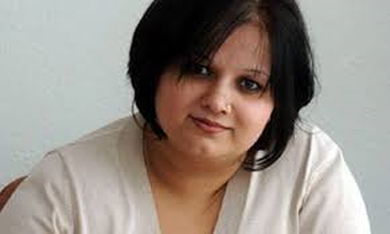How to contact usWhere to find us: 11a Well Street . Birmingham . West Midlands . B19 3BG
Telephone: 0121 554 3920 Email: [email protected] Email: [email protected] |
About Throughcare
Throughcare Housing and Support (Throughcare) is a charity that was formally established on 8 November 2006, by Mrs Kelly Kaur. Through her own personal experiences, Kelly knows how difficult it can be for many vulnerable people to find the support and help they need, whether that support comes in the form of supported housing, practical and/or emotional support, which can sometimes be difficult to find, even if the person is eligible to receive it. Having experienced homelessness and abuse herself, Kelly knows first hand how lonely and frightening it can be when you don't have a home or a support network. With a growing need to help the vulnerable and a feeling of wanting to give back to the community, Kelly started Throughcare with the help of her team of managers, support staff administrators and volunteers. After 10 years, Throughcare now houses and supports adults and young adults with a range of vulnerabilities; homelessness, abuse, forced marriage, asylum seekers to name a few. Our work is about changing lives, providing stability to those wanting to improve their lives and to promote independence. |
|
Kelly's Story
Over the years, Kelly has participated in TV and radio interviews, newspaper interviews and been asked to speak at seminars and training sessions about her experiences as a survivor of forced marriage, abuse and homelessness. Kelly is happy to share her story in the hopes that it will encourage people to listen and learn. But especially it's a message to survivors; You can escape, you don't have to be afraid or ashamed to ask for help, there are people out there who want to help you. Throughcare Housing and Support want to help you. |
Personal Experience
When she was 16 years old, Kelly arrived home from school to find several unknown people in her home.
Her parents urged her to go upstairs and change into something more traditional, a request which struck her as odd as she thought her Asian parents to be quite modern.
When she came back down, she was regarded with approval by the people in her Black Country home.
She then realised her parents had chosen an Indian man they deemed suitable for her to marry.
She said: "I was always aware I would have an arranged marriage. But I had assumed we would sit down and discuss it in a proper way.
"I didn't think my parents were that traditional. There wasn't a big Asian community in the Black Country at that time and I had been brought up in quite a Western way."
College ambitions
She has assumed her parents knew about her ambitions to go to college and to build herself a career. But her tears at meeting her future husband were mistaken for tears of joy by her family.
"He came from India and I couldn't really speak Punjabi," She said. "Plus, I did not find him attractive at all. I was told he was 23 but I think he was older." She turned to her father, hoping he would understand her fears. "I was not brought up to be able to say no to my dad, because of our culture. So, when I cried I thought he would understand and stop the process. But he gave me a hug and said everything would be OK," she said.
Unable to help
Teachers at her school in Darlaston were unable to help and neither were her cousins. In the end, she left home.
"I used to go to evening classes at college. And one day, I was sat on the bus so busy thinking about my situation that I went past my stop and ended up in Birmingham. I had never been to Birmingham before. I tried to ring my parents but I had forgotten the number and they were ex-directory. So, I rang friends from Darlaston to pick me up. They came to fetch me but that is when I decided it was time to leave home."
Her parents reported he missing to Police, telling them that she was only 14. They arrived at the flat in Edgbaston where she was staying and took her home. "I was not allowed out without supervision for a time. Eventually they introduced me to another man from Germany, so I left home again," she said.
Not accepted
All this took place 20 or so years ago. Now, aged 38, Mrs Kaur has married (an Asian man) and has two daughters, aged eight and three. She reconciled with her parents before they died but she still does not have any communication with other family members. "I am still not accepted by the vast majority of Asian society because I am classed as a runaway, " she said.
Watching her eldest daughter grow up promoted Mrs Kaur to launch her own charitable group Throughcare, a support group aimed at helping young women and men in the same situation.
" I realised when I left home that it can be a cruel world out there. I felt vulnerable, and I saw some people succumb to drugs and all other things that can lie in wait. "All i wanted at that time was for someone to mediate between me and my family, "We are willing to provide that mediation for people who feel they need help." If mediation fails the group can provide a refuge and help with benefits and other advice.
"It has taken me this long, about 20 years, to be able to admit to myself that I had done nothing wrong," Mrs Kaur said. "We are the new generation. If we can't put a stop to things like this, then who can?"
Interview conducted and written by Sarah Portlock, BBC News, Birmingham
When she was 16 years old, Kelly arrived home from school to find several unknown people in her home.
Her parents urged her to go upstairs and change into something more traditional, a request which struck her as odd as she thought her Asian parents to be quite modern.
When she came back down, she was regarded with approval by the people in her Black Country home.
She then realised her parents had chosen an Indian man they deemed suitable for her to marry.
She said: "I was always aware I would have an arranged marriage. But I had assumed we would sit down and discuss it in a proper way.
"I didn't think my parents were that traditional. There wasn't a big Asian community in the Black Country at that time and I had been brought up in quite a Western way."
College ambitions
She has assumed her parents knew about her ambitions to go to college and to build herself a career. But her tears at meeting her future husband were mistaken for tears of joy by her family.
"He came from India and I couldn't really speak Punjabi," She said. "Plus, I did not find him attractive at all. I was told he was 23 but I think he was older." She turned to her father, hoping he would understand her fears. "I was not brought up to be able to say no to my dad, because of our culture. So, when I cried I thought he would understand and stop the process. But he gave me a hug and said everything would be OK," she said.
Unable to help
Teachers at her school in Darlaston were unable to help and neither were her cousins. In the end, she left home.
"I used to go to evening classes at college. And one day, I was sat on the bus so busy thinking about my situation that I went past my stop and ended up in Birmingham. I had never been to Birmingham before. I tried to ring my parents but I had forgotten the number and they were ex-directory. So, I rang friends from Darlaston to pick me up. They came to fetch me but that is when I decided it was time to leave home."
Her parents reported he missing to Police, telling them that she was only 14. They arrived at the flat in Edgbaston where she was staying and took her home. "I was not allowed out without supervision for a time. Eventually they introduced me to another man from Germany, so I left home again," she said.
Not accepted
All this took place 20 or so years ago. Now, aged 38, Mrs Kaur has married (an Asian man) and has two daughters, aged eight and three. She reconciled with her parents before they died but she still does not have any communication with other family members. "I am still not accepted by the vast majority of Asian society because I am classed as a runaway, " she said.
Watching her eldest daughter grow up promoted Mrs Kaur to launch her own charitable group Throughcare, a support group aimed at helping young women and men in the same situation.
" I realised when I left home that it can be a cruel world out there. I felt vulnerable, and I saw some people succumb to drugs and all other things that can lie in wait. "All i wanted at that time was for someone to mediate between me and my family, "We are willing to provide that mediation for people who feel they need help." If mediation fails the group can provide a refuge and help with benefits and other advice.
"It has taken me this long, about 20 years, to be able to admit to myself that I had done nothing wrong," Mrs Kaur said. "We are the new generation. If we can't put a stop to things like this, then who can?"
Interview conducted and written by Sarah Portlock, BBC News, Birmingham




